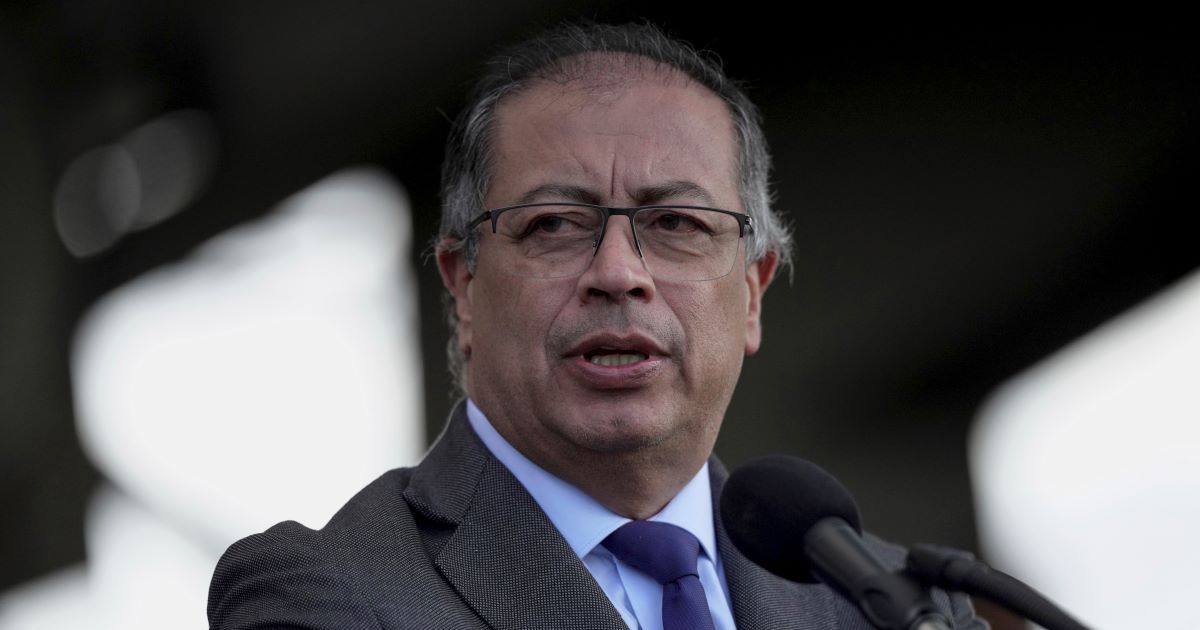BOGOTA.- He Colombian President Gustavo Petro installs this Saturday a New legislative period in Congress which will be key to the future of its ambitious social reforms which he has already said he will continue to pursue despite the failures he has had so far.
However, in the background there is a noise corruption scandal in the National Unit for Risk and Disaster Management (UNGRD) for alleged cost overruns in contracts that would have served as alleged bribes in favor of the leftist president’s social reforms. Former officials, ministers and congressmen have been questioned and some face judicial investigations.
Petro denies alleged bribes to legislators.
The leftist leader has invested his political capital in social reforms, as part of his campaign promises to reduce the inequality gap, which he says is a preponderant problem in the country. But his victories have been few.The most notable was the pension reform approved in June, which changes the system that has been in place for three decades. However, the health reform and the law to regulate the education system were defeated.
In the new legislature, the government is expected to present a new reform to the justice system, the education system, and health care, and to continue the process of the labor reform, which still has three debates left to be approved.
The current Congress – elected in March 2022 by popular vote – is diverse in its political forces and has an unprecedented representation of the left, although not enough to form a majority. Petro still has to convince the political center and the right-wing parties. According to previous political agreements, the conservative Efraín Cepeda is expected to obtain the presidency of the Senate – the highest position of power in Congress.
“Cepeda has shown that he is not so close to the government, but he is from the Conservative Party and although they have not supported some of the reforms, they have provided a quorum (minimum presence to vote on laws) for the government and that is a way of supporting it,” said Javier Garay, a doctor in Political Science and professor at the university extership of Colombia.
The former presidents of the Senate, Iván Name, and of the House of Representatives, Andrés Calle, are being investigated by the Supreme Court of Justice for the alleged corruption case. Sneyder Pinilla, a former employee of Ungrd, investigated by the Attorney General’s Office, reported that part of the money for the purchase of the tank trucks for 12 million dollars that resulted in cost overruns would have ended up in the personal coffers of the congressmen. Name and Calle deny these accusations.
Despite the alleged corruption scandal, Garay believes that congressmen are not affected at all by the negative perception that public opinion may have and could support social reforms. “I would not be surprised if they were to support the government anyway, one thing is rhetoric and another is practice,” added the analyst.
In this new legislature, Petro will promote his projects with the new Minister of the Interior, Juan Fernando Cristo, with whom he wants to implement a “fast track”, a formula to approve laws quickly in Congress that was used temporarily seven years ago and that he seeks to revive, he said, to advance in the implementation of the peace agreement that was signed in 2016 by the State and the extinct guerrilla. Revolutionary Armed Forces of Colombia (FARC).
But the fast track would not be easy. Congress would have to pass a law establishing the legal instruments for expedited processing, which would take several months, and then the Constitutional Court must decide whether or not the proposal is in accordance with the Constitution.
Rejection of the “fast track”
Hernán Cadavid, a congressman from the opposition party Centro Democrático, said that he does not agree with the “fast track” concept, because he believes that it ignores the mandates of the Constitution and “seeks to ignore the functions of Congress” by not being able to carry out all the debates, but rather follow an expedited path. He is also concerned that this way they seek to approve other reforms that have nothing to do with the peace agreement with the FARC, but with his government program and that have not been successful in Congress.
Among the objectives of the “fast track”, Petro proposed controversial measures such as the release of more than 35,000 peasants who cultivated coca leaves – the raw material for cocaine – and the institution of a “single system of truth, justice, reparation and reconciliation” for all actors in the conflict, without clarifying whether this would imply dissolving or modifying the current Special Jurisdiction for Peace, created after the 2016 peace agreement to judge former guerrillas, military personnel and civilians who participated in the armed conflict.
Cadavid indicated that there is no certainty about what may happen, because he says that “Congress, having an absolutely transactional relationship with the national government, is unpredictable,” alluding to the scandal involving some congressmen in the corruption case at Ungrd and that could condition his actions in light of Petro’s proposal.
Source: With information from AP

